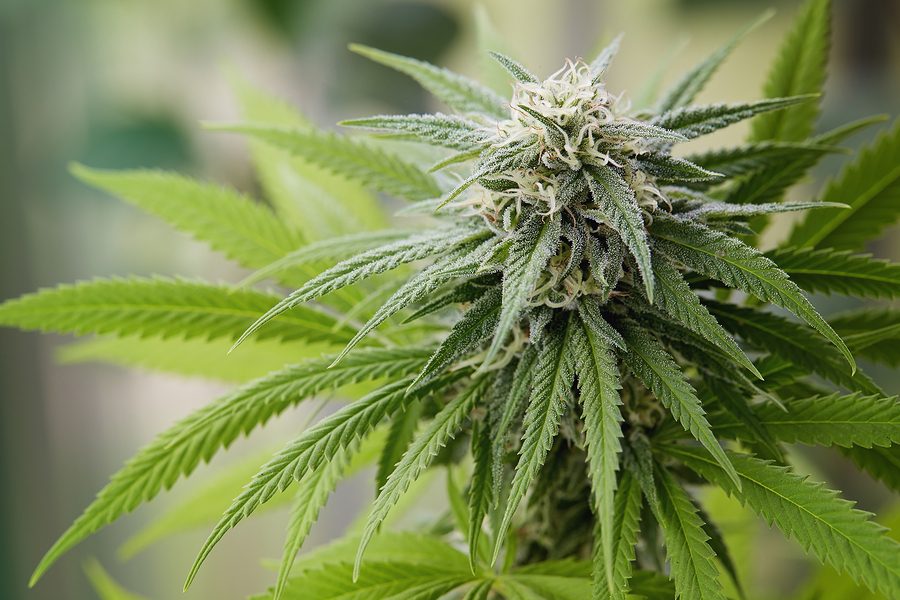A new program will allow first-time offenders, who are caught in El Paso with marijuana, to choose between getting arrested or completing community service hours.
First Chance, the program presented by District Attorney Jaime Esparza, which was approved by El Paso County Commissioners on Monday, Oct. 30, is expected to start within the next couple weeks.
Claudia Duran, the project administrator for the El Paso County District Attorney’s Office, said people who are caught for marijuana possession in addition to another charge will not qualify for First Chance.
“First Chance is a program for first-time offenders of possession of marijuana—four ounces and under misdemeanor possessions,” she said. “The program came about because the District Attorney’s office did a study and found that approximately 2,600 possessions of marijuana are under two ounces. And out of those, 700 were first-time offenders who had no convictions on their record.”
After reviewing the study, Esparza thought the program would help first-time offenders avoid an arrest and a possible costly judicial process if they are caught with marijuana.
“The better alternative was that we offer this program to these first-time offenders and hope that going through this program would basically teach them a lesson. ‘Don’t do this again.’ You get one chance and that’s it,” she said.
According to the study, the majority of those arrested were 25 years of age and younger. This makes it difficult for people looking for jobs, according to Duran.
“When you get arrested it stays on your record forever,” she said. “We’re hoping that not having that one arrest for marijuana possession on their background will help them get great jobs, get school loans. I hope this a lesson they can take and learn from.”
If there is probable cause for stopping a person for possession of marijuana, a law enforcement officer will detain the offender for a couple of minutes while they make a phone call to the district attorney’s 24-hour program, DIMS.
“Our office will then determine whether that person qualifies or not,” Duran said.
The El Paso Police Department and the El Paso Sheriff’s Department will be the ones offering the program to the offenders, who will have the chance of choosing between the program or getting arrested.
If the offender chooses the program, they will have five business days to report to the Criminal Justice and Criminology Department.
If the offender fails to show up to CJC, they will be arrested and charged with marijuana possession.
“They will have to complete eight hours of community service and pay a $100-dollar fee within 60 days,” Duran said.
During a February 2016 debate, Esparza said marijuana was a “gateway drug” and that marijuana crimes should be prosecuted.
“I don’t think it’s a big change at all, I don’t think we’re letting these offenders go at all,” Duran said. “All we’re saying is that they get one chance without being arrested and if you don’t comply with the terms, you’re gonna get arrested.”
Colt DeMorris, executive director for El Paso NORML chapter, an organization dedicated to achieving the legalization of non-medical marijuana in the U.S., said this is a program that will help a lot of people in the city.
“It’s a small step in the right direction. It will benefit people who have never offended before, it will benefit a lot of students that are receiving financial aid,” DeMorris said.
He said these kinds of programs should expand more and cover people who have chronic diseases.
“Another step that we can take is expanding this program to include patients with cancer or multiple types of sclerosis, people who can show why they need it,” DeMorris said. “I would also like to see the stop going after and stop arresting people with minor possessions. Yeah, they take their weed, but don’t put them in jail.”
The Prospector contacted UTEP Police Chief Cliff Walsh for a statement on the program and asked if First Chance would be offered to students by UTEP officers, but did not receive a clear response.
“All university procedures adhere to local, state and federal laws. We cannot speculate on the outcome of polices that are not yet in place, but we look forward to learning the outcome of this discussion so we can better assess its impact on our campus community,” Walsh said in an email.
According to the UT System and UTEP Policy, “any student who is guilty of the illegal use, possession and or sale of a drug or narcotic, including any amount of marijuana, on the campus is subject to University discipline in addition to possible criminal prosecution by civil authorities.”
If a student is found guilty, the minimum disciplinary penalty is the suspension from enrollment or attendance for a specified period of time and or the suspension of rights and privileges for a specified period of time.
Follow Rene Delgadillo on Twitter @rdelgadillonews










